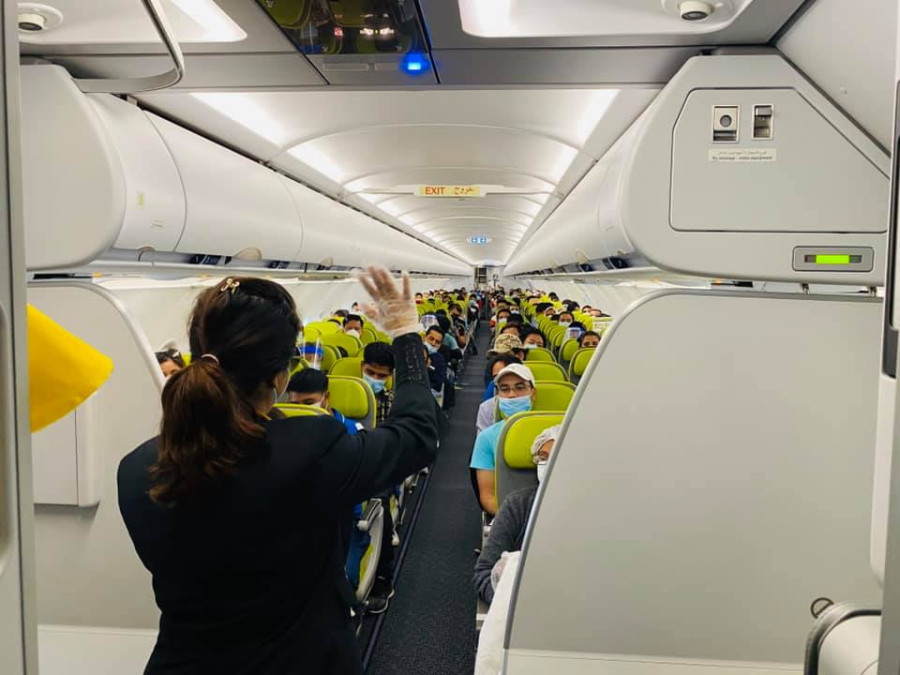National
Repatriation quandary persists even with funds to support migrant workers’ airfare
While Nepali embassies in labour destination countries struggle with the complicated verification process, labour rights activists question the government’s commitment to bring citizens home.
Chandan Kumar Mandal
The Supreme Court on June 15 ordered the government to repatriate the Nepali migrant workers stranded in various labour destinations by using the Foreign Employment Welfare Fund.
It’s been more than two and half months since the court decision, and the government has still not provided the air tickets to the Nepali workers languishing in foreign countries. Many workers have been without jobs and money to support themselves for months now due to the coronavirus pandemic.
Following the Supreme Court’s directive, it took nearly a month for the government to approve the migrant workers’ repatriation guidelines. Now, nearly one and a half months later, it still remains unclear when the migrant workers will return home.
Din Bandhu Subedi, spokesperson for the Foreign Employment Board, which manages the welfare fund, said the board had released Rs 4 million to the Nepal Embassy in Malaysia to send back 86 stranded workers.
“But we are not yet sure whether those workers have already returned to Nepal or not. Other embassies have also been collecting details of the workers who need to be repatriated,” he told the Post. “For instance, the Nepal Embassy in the United Arab of Emirates has estimated that 15,000 Nepali workers may need the welfare fund’s support to return home.”
The government has been facing criticism for the delay in repatriation of troubled migrant workers.
Shom Prasad Luitel, lawyer who had filed the petition at the Supreme Court for repatriation of Nepali migrant workers, says the government and its embassies in labour hosting countries are not committed to the task of repatriating the stranded citizens.
“I think the government wants the workers to return with their own wherewithal and reimburse them later,” said Luitel.
The guidelines state that the concerned recruiting agencies and foreign missions must first ensure the migrant workers have not received air tickets or other financial aid from their employers or host nations before they get support from the welfare fund to return home.
Some have argued that the guidelines are complicated, thus delaying the repatriation process.
“Even some ambassadors have expressed dissatisfaction on the guidelines,” said Sharu Joshi Shrestha, a gender and migration expert. “Lack of coordination among concerned stakeholders, which was missing while drafting of the guidelines, has affected the overall repatriation process.”
But Luitel disagrees. He argues the guidelines simply instruct the Nepali missions to contact the employers, recruiting agencies, or the host governments and check if the workers are getting any financial support for airfare so that they could return home.
“For years, the Nepali missions in labour destination countries have been taking the grievances of workers to the employers, recruiting agencies and host governments. The repatriation guidelines also instruct them to do the same. Only this time they are supposed to make sure whether the workers have received airfare support,” said Luitel, who was also a member of the committee that drafted the guidelines.
As of Friday, 56,126 Nepalis have returned from various countries, mainly from the Persian Gulf states and Malaysia. Several thousand are expected to return as repatriation and regular flight services have resumed.




 14.24°C Kathmandu
14.24°C Kathmandu















